Course announcements
- In this course you will model a supply planning business process using SAP Integrated Business Planning utilizing built-in tools for forecasting, reporting and analytics. You will also gain a solid understanding of the SAP IBP Time Series Based Supply Planning business processes and data management. Instructor-led training is supplemented with hands-on exercises.
- IBP200 is an intensive and detailed course. DO NOT attempt to take this course without first completing IBP100 – SAP IBP for Supply Chain, Overview. If you take IBP200 without first completing the mandatory prerequisite course, you will not achieve the maximum benefits and some concepts will be difficult to comprehend. A self-paced e-learning version of this course is available with an active subscription to the SAP Learning Hub (Professional, or solution edition for Supply Chain Management).
Course information
- SAP Integrated Business Planning
- Outlining the SAP IBP Solution Strategy
- Positioning SAP Integrated Business Planning in a System Landscape
- Explaining SAP IBP for Sales and Operations
- User Interface
- Navigating in the SAP IBP Web UI
- Personalizing the SAP Fiori Launchpad
- Configuring an SAP IBP Connection with Microsoft Excel
- Cloud Security
- Outlining Cloud Security
- Data Integration
- Identifying Data Import Options
- Microsoft Excel Planning and Reporting
- Creating a Template and a Favorite
- Performing a Simulation
- Disaggregation and Key Figure Functions
- Aggregation and Disaggregation
- Fixing Key Figure Values
- Using Planning Notes in the Planning View
- Analytics and Reporting
- Modeling a Business Process Using SAP IBP
- Creating a Dashboard Chart
- Creating a Drill Down
- Statistical Forecasting
- Managing and Running a Forecast Model
- Forecast evolution from statistical forecast to consensus demand
- Creating a Global Configuration Parameter
- Change History
- Configuring and Using Change History
- Overview of Supply Planning
- Explaining the Key Features and Functionality of Supply Planning
- Analyzing a Supply Planning Run
- Master Data Types in Supply Planning in SAP IBP
- Describing General Master Data Types
- Modeling Sourcing Rules
- Modeling Multilevel Production
- Modeling Storage and Handling Resource
- Key Figures
- Explaining How Attributes can be Modelled as Key Figures
- Explaining Input Key Figures
- Explaining Output Key Figures
- Explaining Input/Output and Helper Key Figures
- Explaining the Analytics and Dashboards Used for Supply Planning
- Supply Planning Operators Heuristic
- Describing the SAP Supply Chain Management Operator
- Describing Other Parameters for the Heuristic
- Planning with Lot Sizes within SAP IBP
- Modeling Lot Size
- In-transit and Downstream Figures in SAP IBP
- Explaining In-Transit Key Figures
- Explaining Downstream Key Figures
- Adjusted Key Figures in SAP IBP
- Explaining the Adjusted Key Figures
- Advanced Supply Planning
- Modeling Co-Products
- Modeling Production Lead Time
- Controlling Component Offset
- Consuming Capacity Accurately
- Subnetwork Planning
- This course will prepare you to:
- Outline the features of SAP IBP Time Series Based Supply Planning
- Describe in detail: Modeling, Process, and Parameters
- Perform analysis
- Utilize time-series operators
- Application Consultant
- Business Analyst
- Business Process Architect
- Business Process Owner / Team Lead / Power User
Essential
- IBP100 – SAP IBP for Supply Chain, Overview
Recommended
- IBP110 - SAP IBP, Add-in for Microsoft Excel
- SAP IBP OD 2305
Find a course date
Can't find a suitable date?
Booking for 1-2 people?
Make a request for us to schedule training around what works for you? We will do our best to consider your request.
Request a training dateBooking for 3+ people?
Our 3 to RUN initiative empowers you to schedule our chosen classroom training course or virtual SAP Live Class on a date that suits you. You need at least three confirmed participants to register and SAP will add it to your schedule.
Find out more



